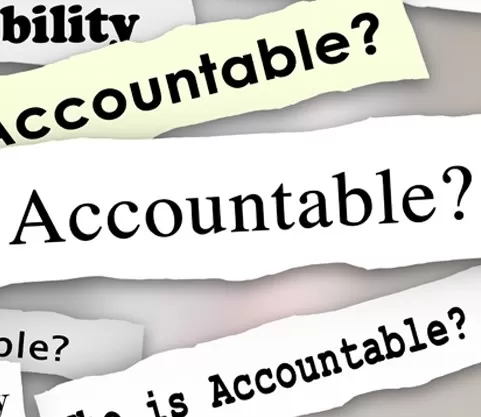
The updated and revised version from the New York Times Bestseller, Crucial Accountability: Tools for Resolving Violated Expectations, Broken Commitments, and Bad Behavior offers key insights about problems that often plague organizations and families. Colleagues break a rule, coworkers miss a deadline, a friend fails to live up to a commitment and nobody says a word. Nobody is held accountable. Addressing accountability is a crucial aspect of managerial responsibility; however, it is often handled poorly.
Here are some key strategies and principles from the book that can transform how managers empower their teams:
The Importance of Accountability:
Drawing from an enlightening experiment, the authors shed light on the prevalent phenomenon of bystander silence in the face of misconduct. However, they also reveal a powerful truth: when equipped with the right tools—specifically, a script—individuals are more likely to confront wrongdoing. This underscores the significance of fostering a culture where accountability thrives.
Initiating Accountability Conversations:
The authors advocate for a structured approach when initiating accountability conversations, emphasizing the importance of clarity and timing. By delineating the violation and assessing its appropriateness for discussion, leaders can ensure productive dialogue. Employing the CPR framework—Content, Pattern, Relationship—facilitates a comprehensive understanding of the issue at hand, fostering effective communication.
Self-Reflection and Understanding:
Central to effective accountability is self-awareness and empathy. Leaders are encouraged to examine their own emotional states and biases before engaging in discussions. Feeling moral superiority and starting the conversation from an elevated emotional state often goes badly. By avoiding the Fundamental Attribution Error and considering external factors influencing behavior, managers can approach conversations with empathy and understanding.
Establishing Psychological Safety:
Creating a conducive environment for accountability conversations is paramount. Leaders must convey respect and shared goals to instill confidence in team members. Beginning with a clear description of the discrepancy, followed by a focus on mutual purpose, sets the stage for constructive dialogue. Ending with open-ended questions ensures mutual understanding and commitment.
Motivation and Capacity:
Addressing both motivation and capacity barriers is essential in fostering accountability. Leaders must ascertain whether individuals lack motivation or face inherent obstacles. By involving employees in problem-solving and addressing root causes, managers can empower them to overcome barriers and fulfill their responsibilities.
Agreeing on Actionable Plans:
The culmination of accountability lies in actionable plans and follow-up. Leaders must ensure clarity regarding roles, responsibilities, and deadlines. Regular follow-up is essential, particularly for tasks with high risk or inexperienced individuals, to reinforce commitment and track progress effectively.
In essence, "Crucial Accountability" serves as a roadmap for leaders striving to cultivate a culture of responsibility and excellence within their teams. By embracing the principles outlined in this seminal work, managers can navigate the complexities of accountability with confidence hopefully fostering a culture of empowerment and growth.




